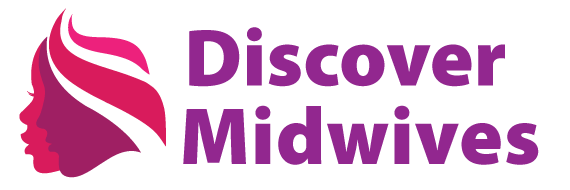Author’s Note: We intend that the words “woman”, “women”, or the pronouns she/her inclusively refer to all childbearing individuals, regardless of their gender identity, in order to use language that is consistent with the research and references cited here.)
What is shared decision-making?
Shared decision-making is a form of communication where women and midwives collaborate on healthcare decisions. 1 The midwife offers evidence-based information on the risks and benefits of the available options for a particular medical decision, and with this information, the woman makes the best choice for herself and her family based on her preferences and values. In this process, with the support of her midwife, the woman is able to make informed decisions that best fit her individual context.
How is shared decision-making different from informed consent?
Both informed consent and shared decision-making can be examples of effective and respectful communication between midwives and women. While informed consent usually occurs in situations where the midwife explains the risks and benefits of an intervention and the woman simply accepts or declines that intervention, shared decision-making is a collaborative process, where the midwife supports and guides the woman as she deliberates her choices, makes her choice, and debriefs after the choice is made.
Why is shared decision-making important?
When women and midwives engage in shared decision-making, studies show that women are more satisfied with their care, feel more knowledgeable about their choices, and feel less anxious about their choices. 2,3 Shared decision-making can be particularly helpful in situations where the best choice may not be clear due to a lack of evidence. For example, ACNM encourages the use of shared decision-making when discussing whether or not a pregnant woman should receive the COVID-19 vaccine. 4
Ask your midwife about shared decision-making! Partnering with women in their healthcare is a
core value of midwives, and a central component of the midwifery philosophy of care.
2 Bringedal H, Aune I. Able to choose? Women's thoughts and experiences regarding informed
choices during birth. Midwifery. 2019 Oct;77:123-129. doi: 10.1016/j.midw.2019.07.007. Epub
2019 Jul 9. PMID: 31323487.
3 Horey D, Kealy M, Davey MA, Small R, Crowther CA. Interventions for supporting pregnant
women's decision‐making about mode of birth after a caesarean. Cochrane Database of
Systematic Reviews 2013, Issue 7. Art. No.: CD010041. DOI:
10.1002/14651858.CD010041.pub2.
by Michele Megregian, CNM
Michele Megregian, CNM is an assistant professor at Oregon Health & Science University School of Nursing in Portland, Oregon. She has been a midwife since 1998, practicing in the Chicago, Illinois area before moving to Oregon in 2009. She is a PhD candidate at Maastricht University in the Netherlands and her thesis work is focused on midwifery ethics and shared decision-making. In her spare time, you can find her baking, crocheting, or hiking with her partner.
photo by Emily Rumsey, CNM






